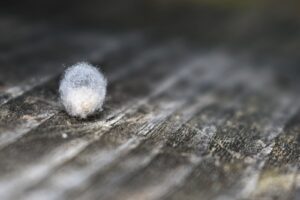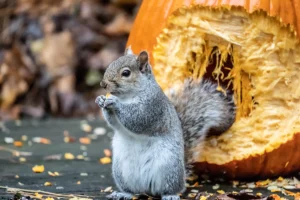Home / Blog / Spiders / A Guide to Spiders in Texas
A Guide to Spiders in Texas

Scientifically reviewed by Daniel Baldwin, BCE, CCFS, CP-FS
-Published on June 8, 2023
-Updated on July 12, 2023
Texas is home to over 900 species of spiders, according to Texas Parks and Wildlife, making the likelihood of you finding spiders in your home incredibly high.
While most of the common spider species found in homes aren’t considered poisonous or dangerous to humans and pets, there is a handful to look out for that can cause significant harm. If you suspect you’re dealing with a spider infestation in your Texas home, read this guide to learn about the most common spider species and how to restore safety and peace to every corner of your home.
Common spiders in Texas
With hundreds of species spanning one of the largest states in the U.S., it’s near impossible to know the complete list of which spiders could be found in Texas. It can also be difficult for homeowners to identify common house spiders in Texas and how to handle removing them appropriately. Below are some of the most common species of spiders you’ll find in the Lone Star state.
American house spiders
American house spiders have elongated bodies and eight legs. They create tangled messes of webs in the corners of attics and window frames, known as the iconic cobweb. These brown spiders in Texas rarely bother humans and are not aggressive. In some cases, they may even play dead when they feel threatened. If handled roughly, they may bite in defense, which can be painful for a day or two. Their venom is not poisonous to humans.

Black widow spiders
One of the most notorious spiders in the U.S., black widow spiders are found both indoors and outdoors throughout the state of Texas. They are black, with a bulbous body and a signature red hourglass figure on their back. They build their messy webs near ground level, typically make their homes in undisturbed outdoor structures like abandoned sheds or cellars. Only the female black widows are dangerous to humans. Their bite feels like a pin prick and causes swelling and two faint red spots surrounded by redness at the bite site. Pain then localizes in the abdomen and back, followed by many other life-threatening symptoms. Medical attention should be sought immediately if you believe a black widow has bitten you.

Brown recluse spiders
Another venomous spider found in Texas is the Brown recluse spider, which hides during the day and is active at night. They prefer warm, dry spaces like closets and barns. These brown spiders in Texas are also called fiddle-back spiders because the pattern on their back is reminiscent of a violin. Their bites cause decay of the tissue surrounding the bite and should be treated by medical professionals immediately.

Jumping spiders
Ranging in color from black, tan, brown, or gray, jumping spiders have stout bodies and legs with pale or white markings. Their front legs are typically thick and long, and they’re covered with iridescent hairs. Unlike most other spiders on this list, they don’t spin webs but rather hunt their prey. While jumping spiders may bite in defense, their bites are not poisonous to humans. They’re far more likely to run or jump away than attack.

Wolf spiders
Wolf spiders are most often brown, gray, or tan with distinct stripe-like markings on their bodies. They are large and stocky, with spiny legs typically covered in hairs. Wolf spiders don’t construct webs. Instead, they create burrows in the ground, waiting for prey to walk by. Wolf spiders venom is not poisonous so they don’t pose a threat to most people, although some can have an allergic reaction to the venom. They may bite if they feel threatened, and their bites can be painful. You may experience swelling and itchiness, but it doesn’t last long.

What are the biggest spiders in Texas?
The size of spiders that live in Texas can span anywhere from 1 ¼ to 4 inches long. Below are three of the biggest:
Texas brown tarantula
The largest spider you’ll find in Texas is the Texas brown tarantula. They can grow four inches long and have dark brown bodies with red hairs. They stick to the ground and eat mostly ground-dwelling insects like cockroaches. Their bite is non-lethal to humans in most cases.

Huntsman spider
With a leg span that can reach up to five inches across, Huntsman spiders have an intimidating stance and size. They have narrow bodies and very long legs. Huntsman spiders don’t spin webs and aren’t dangerous to humans.

American nursery web spider
With a leg span of up to 2.5 inches, American nursery web spiders are one of the biggest spider species in the state. They have a light brown color with dark brown bands down the center of their bodies. They only spin webs when laying their eggs and aren’t dangerous unless they feel their nest is threatened.

When is spider season in Texas?
While spiders are common across Texas year-round, spring is the most active season. As insects start becoming active in your yard, spiders will show up in search of food. The onset of spring is the best time to put preventative measures in place to avoid any potential spider infestations around or in your home.
How do I prevent spiders from getting into my home?
Spiders find their way indoors through crevices, cracks, and gaps in your home, such as in windows, doors, and vents. To prevent spiders, seal as many cracks and crevices as possible. If cables, wires, or electrical components are running outside, seal those openings with caulk. Keep your window screens in good condition, and ensure they create a tight seal on your window frame.
Pest control services
The best way to prevent spiders in the home is by hiring a professional pest control company like Hawx Pest Control. With proven methods, qualified technicians, and the best products and services available, our friendly professionals are ready to help you all year round. We use a three-fold process plus high-quality tools and products to address infestations thoroughly, leading to safe and reliable outcomes. Call us for your free estimate today!
Related Articles
Visit our blog to learn more.
→



